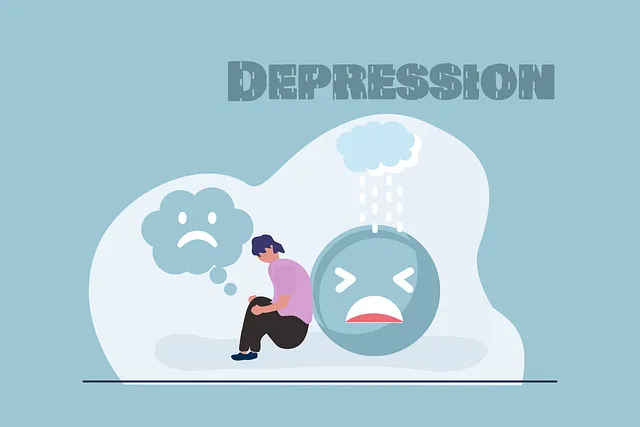Positive thinking exercises, emphasized by Lone Tree Kaiser Permanente behavioral health number experts, transform personal growth and mental well-being. Regular practice reframing negative thoughts reduces stress, anxiety, and enhances resilience. These exercises are integral to trauma support services, aiding in coping mechanism development and self-care routine establishment. Mindfulness integration into daily routines via techniques like mindful breathing or meditation significantly reduces stress levels, improves social skills, and builds resilience. Tracking progress through journaling boosts confidence and motivates continued positive thinking efforts.
Positive thinking exercises are powerful tools for enhancing mental well-being, offering a proactive approach to emotional health. This article explores how implementing these practices can significantly improve your life. We’ll delve into various techniques, from understanding the concept of positive thinking to integrating mindfulness into daily routines and overcoming negative thought patterns. Discover success stories from Lone Tree Kaiser Permanente Behavioral Health Services and learn effective strategies to track progress and celebrate achievements, transforming your mental landscape.
- Understanding Positive Thinking Exercises
- Lone Tree Kaiser Permanente Behavioral Health Services
- Integrating Mindfulness into Daily Routines
- Techniques for Overcoming Negative Thought Patterns
- Tracking Progress and Celebrating Successes
Understanding Positive Thinking Exercises

Positive thinking exercises are a powerful tool for personal growth and mental well-being. These activities are designed to cultivate optimism and reframe negative thoughts into more constructive and positive ones. At Lone Tree Kaiser Permanente behavioral health number, experts emphasize that regular practice can significantly impact one’s overall outlook on life, reducing stress and anxiety while enhancing resilience.
Trauma Support Services often incorporate these exercises into their programs, as they aid in building coping mechanisms and promoting self-care routine development for better mental health. By engaging in positive thinking activities, individuals learn to challenge negative thought patterns, boost self-esteem, and improve social skills through training tailored to their needs. This proactive approach not only empowers people but also equips them with lifelong tools to navigate life’s challenges more effectively.
Lone Tree Kaiser Permanente Behavioral Health Services

Lone Tree Kaiser Permanente Behavioral Health Services stands as a beacon of hope and healing for many in the community. This facility offers a range of services designed to empower individuals with tools for positive thinking and emotional well-being. Their expert team provides specialized care, including Trauma Support Services, tailored to address complex mental health challenges. By offering evidence-based practices, such as Social Skills Training, they help clients navigate and improve their mood management, fostering a sense of balance and resilience in daily life.
Through these comprehensive programs, Kaiser Permanente Behavioral Health Lone Tree aims to revolutionize the way individuals cope with stress and adversity, ultimately enhancing their overall mental health and quality of life. This dedication to positive thinking exercises makes them a leading choice for those seeking transformative behavioral health support in the area.
Integrating Mindfulness into Daily Routines

Incorporating mindfulness into your daily routine is a powerful way to cultivate positive thinking and overall well-being, especially when supported by resources like Lone Tree Kaiser Permanente behavioral health services. Mindfulness encourages individuals to focus on the present moment, accepting thoughts and feelings without judgment. This simple yet profound practice can be seamlessly integrated into everyday activities, from morning routines to commutes. For instance, setting aside a few minutes each day for mindful breathing exercises or meditation can significantly reduce stress levels and enhance mental clarity.
By making mindfulness a consistent part of their lives, individuals can experience improved social skills training, anxiety relief, and confidence boosting. It allows one to navigate life’s challenges with greater resilience and a sense of calm. Whether it’s during a quiet cup of coffee in the morning or a mindful walk in nature, these practices help in cultivating a positive mindset, making it easier to embrace life’s ups and downs with grace and equanimity.
Techniques for Overcoming Negative Thought Patterns

Overcoming negative thought patterns is a crucial step in fostering positive thinking. Behavioral health professionals often recommend several techniques to help individuals navigate and transform their mental landscape. One effective approach involves identifying and challenging distorted thoughts, such as those characterized by all-or-nothing thinking or catastrophizing. Encouraging individuals to examine the evidence supporting or refuting these negative beliefs can help shift their perspective. For instance, a person struggling with anxiety might realize that while one setback doesn’t define them entirely, it’s just a temporary obstacle on their path to success.
Additionally, practices like mindfulness meditation and cognitive-behavioral therapy (CBT) offer powerful tools for managing negative thought patterns. Mindfulness encourages individuals to focus on the present moment, observing thoughts without judgment. CBT goes a step further by teaching individuals to replace negative thoughts with more realistic and positive alternatives. These strategies, readily accessible through resources like Lone Tree Kaiser Permanente behavioral health services, can significantly contribute to improving mental health, making it easier for folks to embrace and sustain a positive mindset. Remember that consistent practice is key to transforming thought patterns and enhancing overall well-being, as supported by the broader field of Mental Health Policy Analysis and Advocacy.
Tracking Progress and Celebrating Successes

Tracking your progress is a vital part of any positive thinking exercise, especially when it comes to enhancing mental wellness. At Lone Tree Kaiser Permanente behavioral health number, we encourage our clients to maintain journals or use digital tools to record their daily thoughts and emotions. By regularly reviewing these entries, individuals can identify patterns, recognize personal growth, and gain valuable insights into their emotional journeys. Celebrating successes, no matter how small, is another powerful aspect of this process. Acknowledging milestones achieved during the practice of positive thinking can significantly boost confidence and motivate continued efforts.
This self-reflection becomes a crucial component in developing effective burnout prevention strategies for healthcare providers. Through continuous tracking, healthcare professionals can better understand their mental wellness coaching programs development, adapt practices as needed, and maintain a healthy work-life balance. It’s an empowering tool that allows them to take charge of their well-being and provide even better care for their patients.
Positive thinking exercises, as demonstrated by Lone Tree Kaiser Permanente Behavioral Health Services, offer a powerful tool for enhancing mental well-being. By integrating mindfulness into daily routines and learning techniques to overcome negative thought patterns, individuals can achieve a more optimistic outlook. Tracking personal progress and celebrating successes along the way fosters a sense of accomplishment and reinforces positive behavioral changes. Remember that, with consistent practice, these exercises can revolutionize one’s mindset, leading to a happier and healthier life. For personalized guidance, reach out to the Lone Tree Kaiser Permanente behavioral health team at [behavioral health number].






